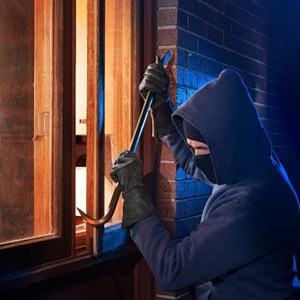Menu

In this article, you can discover:
Under North Carolina law, burglary is defined as trespassing or breaking and/or entering into another’s dwelling house or sleeping apartment at night with the intention to steal or commit a felony. This means that the crime must take place during nighttime hours in a residence. For example, if someone lives above their gas station, breaking into that gas station can be considered as breaking into a house. If the act occurs during the day, it is termed as breaking and entering, not burglary.
North Carolina differentiates these charges based on potential or actual harm at the time of the crime. First-degree burglary is charged when the crime occurs in an occupied house, posing a higher threat of injury to inhabitants. In contrast, if the house is unoccupied, it’s deemed second-degree burglary.
For a burglary conviction, the prosecution must establish:
Yes, carrying a weapon, causing injury, acting with someone else, or committing a significant theft inside can all heighten penalties. The severity of the injury, number of accomplices, and value of stolen items are essential considerations.
Potential defenses include proving the accused was invited in or that the incident didn’t happen at night. Arguably, the most significant defense centers on challenging the prosecution’s ability to prove the accused’s intent at the time of entry. Without clear evidence, it’s challenging to establish intent beyond a reasonable doubt.
The impact of one’s criminal history is substantial. Judges consider previous offenses to determine an individual’s classification, ranging from class three to class six, with class six indicating a more extensive criminal history—the more significant the criminal history, the harsher the potential sentence.
For more information on Facing Burglary Charges In North Carolina, an initial consultation is your next best step. Get the information and legal answers you are seeking by calling (252) 371-0127 today.

Our attorneys bring a wide range of legal, professional,
and personal experiences to their clients
Call Us Now
Wilson (252) 371-0127
Copyright©2025, Lusby Law P.A. All rights reserved.